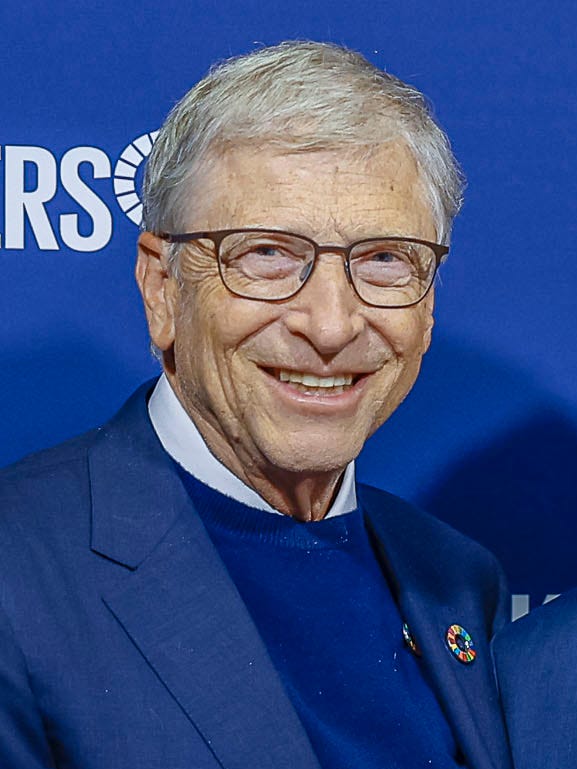🔅 Trump 2.0 & the Future of African Journalism
Plus, Bill Gates’ “ctrl-alt-donate-to-Africa” moment
Good morning from… can you guess where? (Answer at the bottom!)
Trump 2.0 & the Future of African Journalism

With Trump’s return and USAID funding already slashed, African newsrooms are bracing for impact. From investigative journalism grants to training programs, key support structures have vanished seemingly overnight leaving many media houses scrambling. Uganda, for example, has seen at least $2 million in media funding vanish, pushing outlets like Uganda Radio Network (URN) to cut staff and reduce news output. The ripple effect? Over 120 local media stations that depend on URN are now starved of credible, locally sourced news.
But while the West retreats, others are stepping in. BRICS countries (especially China and Russia) are offering media partnerships with fewer conditions and more immediate perks: newsroom equipment, mobile infrastructure, and ready-made content.
This shift is truly about survival: With low pay, political pressure, and limited resources, some journalists are being forced into what some call “precarious professionalism.” They’re navigating an ethical minefield, where editorial independence often clashes with financial necessity.
And while some critics argue that Western-funded journalism was never agenda-free, the new wave of BRICS media influence raises different concerns (more on that here).
The deeper question remains: can African media break free of dependency altogether? Some suggest it’s time to grow local philanthropy, build resilient homegrown newsrooms, and rethink the donor-funded model entirely. But in many places, that’s easier said than done – especially when governments benefit from weakened media.
It’s an interesting situation, and you can read more on the landscape right here.
How a Science Student Became a Nobel Laureate

When Abdulrazak Gurnah arrived in Britain as a young refugee in 1968, fleeing political persecution in Zanzibar, he didn’t come chasing literary dreams. He came with a mindset to pursue science, and a sense of duty. “Whoever thought that reading literature was going to be useful to anybody?” he reflected in a recent episode of Desert Island Discs on BBC Radio 4.
Gurnah, who won the 2021 Nobel Prize for Literature for his profound novels on exile and colonialism, originally studied maths, physics, and chemistry at A-level. Like many of his peers, he was encouraged to pursue a “useful” profession: something that might help rebuild a newly independent nation. But that path never truly fit. “I should not have listened to that hectoring voice that was saying, be something useful,” he said. “I should have done this [literature] because it gives me pleasure and I know I can do it well.”
Eventually, he pivoted. He took evening classes in literature, earned a teaching degree, and went on to complete a PhD. His writing (spanning Paradise, By the Sea, and most recently Theft) has since been celebrated for its compassion and clarity on themes of displacement, memory, and migration.
Gurnah's journey to Britain was far from straightforward. He and his brother left Zanzibar secretly, without telling their mother, because exit documents were tightly controlled by East German-backed security forces. It would be 17 years before he saw his family again.
For a man who once doubted literature’s utility, his life’s work has since proved just how vital stories (and storytellers) can be.
Bill Gates’ “ctrl-alt-donate-to-Africa” moment
Bill Gates has decided to skip the “die rich” exit screen. Speaking at the African Union’s Nelson Mandela Hall in Addis Ababa, the Microsoft co-founder pledged to funnel 99% of what he expects to be a $200 billion fortune into Africa over the next two decades, zeroing in on primary healthcare and education.
The game plan: turn preventable deaths of mums and babies into a relic, wipe out the usual suspects of infectious disease, and lift millions above the poverty line — all before the Gates Foundation sunsets in 2045.
He also said that because "Africa was largely able to skip traditional banking [...] now you have a chance, as you build your next generation healthcare systems, to think about how AI is built into that.”
Gates even gave the crowd an example: Rwanda is already using pocket-sized, AI-powered ultrasounds to spot risky pregnancies — proof, he argued, that the continent can leapfrog clunky old systems the same way mobile money leap-frogged brick-and-mortar banks.
Translation for the rest of us: Gates is swapping yachts for yellow-fever vaccines, betting that a healthier, better-educated Africa is the ultimate growth stock.
Food for Thought
“Better a mistake at the beginning than at the end.”
— Nigeria Proverb
And the Answer is…
The photo is taken from Cotonou, Benin! You can also send in your own photos, alongside the location, and we’ll do our best to feature them.




